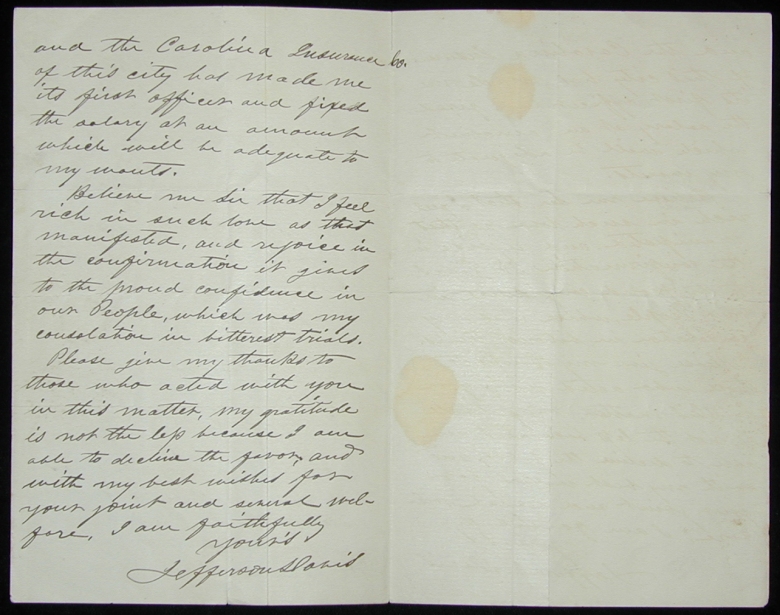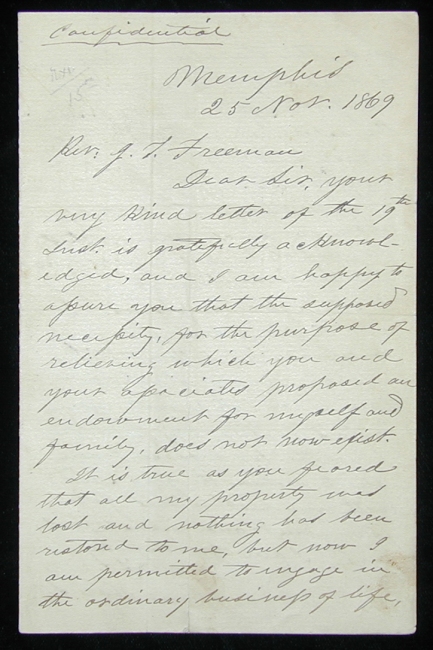|
Superb autograph
letter from Jefferson Davis telling of his "bitterest trials" |
|
|
|
(scroll down to view side two of the letter) |
|
[Civil War] DAVIS, JEFFERSON. Autograph Letter Signed, to Reverend J. T. Freeman. Two pages, folded 8vo sheet with integral blank. " . . . I am happy to assure you that the supposed necessity for the purpose of relieving which you and your associates proposed an endowment for myself and family, does not now exist. It is true as you feared that all my property was lost and nothing has been restored to me, but now I am permitted to engage in the ordinary business of life . . . Believe me Sir that I feel rich in such love as that manifested and rejoice in the confirmation it gives to the proud confidence in our People, which was my consolation in bitterest trials . . ." Davis writes to Reverend Freeman thanking him for a proposed endowment to support the former President of the Confederacy. The letter provides a poignant glimpse of the former leader's post-war plight. He tells of his personal loss and hardship, but at the same time expresses his pride and gratitude for the enduring love and confidence of the Southern people. Two pages, folded 8vo sheet with integral blank. Memphis, 25 November 1869. On Jefferson Davis after the end of the Civil War: "At dawn on May 10, 1865, Davis was captured near Irwinville, Ga. He was imprisoned in a damp casemate at Fort Monroe, Va., and was put in leg-irons. Though outraged Northern public opinion brought about his removal to healthier quarters, Davis remained a prisoner under guard for two more years. Finally, in May 1867, he was released on bail and went to Canada to regain his shattered health. Several notable Northern lawyers offered their free services to defend him in a treason trial, which Davis longed for. The government, however, never forced the issue, many believe because it feared that such a trial might establish that the original Constitution gave the states a right to secede. The case was finally dropped on Dec. 25, 1868. Davis made five trips to Europe in an effort to regain his health, and for a few years he served as president of an insurance company in Memphis, Tenn. In 1877 he retired to Beauvoir, a small Gulf-side estate near Biloxi, Miss., which a patriotic admirer provided for him. There he wrote his Rise and Fall of the Confederate Government. Though pressed to enter the U.S. Senate, he declined to “ask for amnesty,” for he felt he had done nothing wrong in fighting for states' rights under the Constitution, and he never regained his citizenship. He remained the chief spokesman and apologist for the defeated South. Davis' citizenship was restored posthumously in 1978." (Britannica)
|
 |
